The temperature dropped below freezing that night in the woods, and my usual late spring camping set up wasn’t enough. In the small hours, I donned every item of spare clothing I had, including my huge rain cape, and squeezed back into my sleeping bag, shivering. I finally got up just after dawn to the May-time sounds of birds, seemingly annoyed at my presence in the clearing. This was after a pre-dawn hour of a tawny owl (unironically and loudly) calling the koan, ‘Who, who?’ directly above my tent. Needless to say, I did not gain sudden enlightenment.
Audio version
Sleep deprivation makes me flat, grouchy and prone to seeing the worst in things. The grass was wet with dew as I struggled with cold fingers to do up my boots, my head full of unvoiced complaints. Then suddenly through the trees came the first low rays of dawn and the damp clearing turned gold, threaded in every direction with silver. The dew drops and low slanting rays made visible many thousands of fine gossamer threads spun by spiderlings. A few moments before, I had wanted everything to be dry and already bathed in bright daylight. Now, I didn’t want the half-lit moment to end.
Did the optical trick performed by the angle of the light and the fine-ness of the dew allow me to return to my right mind? Was my physical discomfort exactly the correct amount to allow a crack in my mood before it became pervasive? Had the flicker rate of the sunlight through the trees induced a similarly beneficial calming brain wave frequency to those induced by watching a campfire, or light bouncing off rippling water? Did the owl have important questions for me?
My feeling is, all of the above may be true, and the distinctions may not be relevant.
This week I will complete the small foray into things which add to conviviality and steadfastness which I began last week, featuring advice from an unlikely source, reclamation of an archaic term, and a footnote about a famous dog rehabilitator. What they all have in common is a change in the way in which we attend and connect to things, whether that is place, people, or the context we find ourselves in. These are things I have most often learned from working with materials of earth, or through T’ai Chi, which made me inquisitive about what else is gathered in the basket of my ‘attending-to’ mind, than just word-knowledge.
Words are like blackberries in August. They are very easy to find, you always pick more than you need, they can really stain if not handled correctly, and you can get a nasty scratch trying to extricate yourself from the tangle. Also, if you overfill your basket with them, there won’t be room for anything else.
Land-joy
Land-joy is my term for something that a dear friend Tilke Elkins calls ‘Being Held’. She wrote recently, ‘It's the relax I used to feel as a kid when a bigger person carried me, and it's the relax I feel when held by the land, climbing a tree, or floating in water. It's a bodily engagement that rests on, and in attention to/with what carries it.’ What I love about how Tilke writes here, in response to the video I posted last week, is how clearly she situates the place of knowing in the body. The right hemisphere of the brain, (which I often only half-jokingly refer to as ‘your right mind’), is where all sensory experience first lands, before it is even made into conscious knowledge. It is how a human baby ever first learns anything, and more importantly, experiences love. It is one of Modernity’s great tragedies to have dismissed out of hand the primacy of touch. Soon I’ll write about how we might uncover or reclaim better methods for a more fully embodied life-of-the-mind, and some other oxymoronic and paradoxical practices you may enjoy.
For now, on this brief ramble into easily foraged wild nourishment, I will relay a piece of advice I got from a cat, about 45 years ago, which turned out to be the one last thing I needed to regain my joie-de-vivre after healing from an acute period of mental ill-health two years ago. As a kid on the walk to school, I would stop and pet any cats I met along the way. One, who I called ‘Jumper’, always wanted to go up onto his hind legs and push his nose against my hand forcefully. I would have been happy to reach down and stroke him, but he clearly wanted to leap up and balance while we did our thing. That was what gave him the most pleasure, and I was happy to play the game. You will have seen cats of all kinds, and even some dogs1 and foxes, lying on their backs, usually in warm sunlight, lolling from side to side on their own, clearly having a wonderful time. (How do I know they are experiencing land-joy? Such a question was asked of Chuang-Tzu in ‘The Happiness of Fishes’, and I will return to that one day.) We are bodies. We do not have bodies. We are not ‘haunted meat’, (in Charlie Brooker’s superbly uncanny term.) If all our ‘inputs’ are visual and textual, and all we touch is frictionless surfaces, and if we have not reinstated the rich and varied physical life that lockdowns and contemporary electronic habits have stolen from us, then we will, very simply, be somewhat ill. One birth right of humans is a place in the ongoing physical life of earth. Without it, we are without context, (literally - not in the fabric), sullen, and prone to dubious medications peddled by the Machine.
Am I asking you to roll on the ground in the sunshine or push your faces into the hands of willing friends? Well, that would be a good start, as it would deliver a life-enhancing dose of the a vitamin we are mostly all deficient in - foolishness. Pioneers such as Moshe Feldenkrais2 and Thomas Hanna3 based their lives' work on returning people to natural movement. I would encourage us all to urgently attend to the state of our tactile lives, to touching and being touched, to feeling things under our hands and feet that are not manmade. Much is said about bad ideas or too much information making us ill, but improving our ideas and limiting our mental overload alone will not heal this. All mammals, and other creatures such as birds, require the sustenance of grooming and bonding behaviours. We kid ourselves to think we are above this. Deep physical contact with land, even just sitting there with one’s back against a tree, bum on the ground, is a way in for those of us who do not have a companion to roll around with in private, or the ‘I don’t give a damn’ attitude to try my (trademark pending) Lolling Therapy out for themselves. Being exiled from my home of a decade, away from the benefits of studying regular hearty, contact T’ai Chi with others, my own tactile life had wasted away. When I dived back into joyful physical life, alongside mental rehabilitation, I was finally able to get well.
In English, to ‘make sense’ is to be understood. That is a clue. Real knowing is in the body as well as the mind.
An aside. As someone who values Taoist and Stoic principles, I am still a little indulgent of my experiences of delight, like ‘Jumper’ the cat. But there is a reason for this. For a couple of years at the beginning of my menopausal transition, I experienced crushing anhedonia; the inability to feel any joy. I will write about this later in the year, with a few details about what helped plus some of the wisdom hidden in the bitter brew of that time. I see states in life as constantly transitional, and eudaimonia4 is of utmost importance. So before any of my esteemed Taoist and Stoic colleagues admonish me too harshly for my ongoing ‘Dorset ecstatic woman’ phase, I would mention the several periods of my life where I was unable to experience any real delight at all, and see this current period as I do, as a tonic.
Godsiblingry
Once, the children of your godparents or the godparents of your children were your ‘godsiblings’. ‘Godsibbs’ were people you were close to and would regularly chat with, and this also referred to the women present together at a birth along with the midwife. As with so many words about women, the neutral, or even beneficial root of ‘gossip’ came to have a derogatory meaning in the Early Modern era, and to be mainly associated with ‘idle women’s speech’. Travelling with my friend across Scotland earlier this month, and dropping in on so many dear ones, I have been moved to reclaim ‘godsiblings’ for something I haven’t had a name for, but certainly experience. Gossip which has passed between my godsibbs over years has spread outlandishly positive rumours about each other, told tall tales of past adventures, and has sometimes darned each other back into the frayed weave of friendship with stitches made of, ‘X sends you their love’, and, ‘Y asked how you were doing.’
Despite the current craze amongst so-called adults for publicly telling on their friends and colleagues, and leaping into cancellation campaigns, (which has happened to people I know and love on opposite ends of the UK political spectrum), my godsibbs know I won’t join in. ‘Accountability processes’ are sometimes correct for organisations or where there are huge power discrepancies. But in personal relationships, what we might cultivate instead is responsibility, and this is reciprocal, it cannot be imposed unilaterally. When discussions are needed, we can begin with a private word. How many great movements have torn themselves apart recently while the powerful look on, laughing?
What I longed for in my life as a young woman were the kind of friendships I have now. But it took decades for me to learn how to be a friend, as it did not come naturally. It took risking being relied upon, having to become reliable, and learning that through sometimes failing. Harder still, was letting go of taking care of everything myself. It took my losses of 2021 to accept I was already being held by friends and family, to finally see the gossamer web of spiderling threads of care that were everywhere around me, in the offers of physical and emotional assistance.
We all need a handful of godsiblings, to whom we commit. The Machine advertises only simulacra: idealised romantic love, backbiting, frenemies or antagonism, so that we will feel unstable in our connections and insecure in our attachments. When you know that you can speak your mind, ask sincere questions and be held while you grieve, or grow, or growl, the kind of convivial stoicism I value can flourish. Yes, there’s a risk, because the cultures of connection that used to be tied to place and solid inter-family generational friendships have been broken by centuries of industrialism and ‘get on your bike!’ But I take great pleasure in using the internet for godsiblingry, spiritual friendship and delight. I like to imagine little angry robot demons in an overheated control room, endlessly frustrated in their vain attempts to make me click on a nasty video link. Finally, a computer game I am happy to play.
Heaven on earth
I sometimes use the subtitle ‘antidote to the Hubriscene’ for these essays, when they have a slightly medicinal slant. Recently I watched a video Dougald Hine posted of Mohamed Amer Meziane talk about the 'Secularoscene’, (which is mostly congruent with my term 'Hubriscene'). He speaks about a 19th Century and onwards western compulsion to make Heaven physically manifest on earth, and he remarks, 'The earth did not ask to carry the burden of Heaven.'5 However, the kind of heaven that we truly can have here on earth is one where the way in which we relate has been transformed, not all the material conditions. Much to the chagrin of technologists, there will always be the laws of thermodynamics (amongst other things) to scupper complete earthly physical paradise, (though that does not mean we should not attempt to improve conditions for life and to alleviate suffering.) We will come up against no such limits to how we may work with relationship, however, because the tools and the materials are always close to hand, and cannot be taken away from us. And the source of energy is inexhaustible.
This week’s good things: Substack essays I have loved recently include all of February’s pieces from The Convivial Society, Are you living in a simulation? from
, and Illuminated numbers fromI am also reading a wonderful book sent by a friend: A Fortunate Man, by John Berger and Jean Mohr. I am reading it very slowly, stopping every few pages to allow in the evocation of a now impossible way of life. I know the Forest of Dean somewhat, so it is moving to travel back in time to meet the real ‘Foresters’ and their doctor.
Cesar Millan ‘The Dog Whisperer’. I used to watch his shows with my T’ai Chi teacher to relax after long days studying. We were both impressed with his (and his dogs’) quiet authority. One day he gestured to a dog lying contentedly on the ground under a tree, and said something like, ‘This is how dogs love to practice being totally at peace with everything.’ Then he turned to the camera and said, ‘It’s great to make yourself part of the environment, but it’s even better to make the environment part of you.’
More on Moshe Feldenkrais method can be found here.
Human flourishing, a life well-lived, settled good spirits.
You can watch the video here, and the section I am talking about begins after 10 mins.


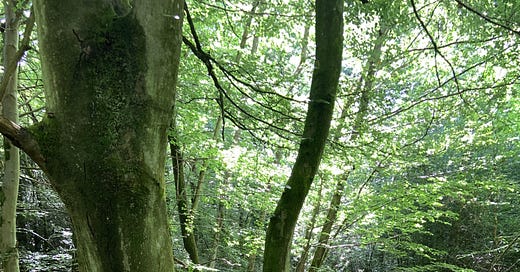



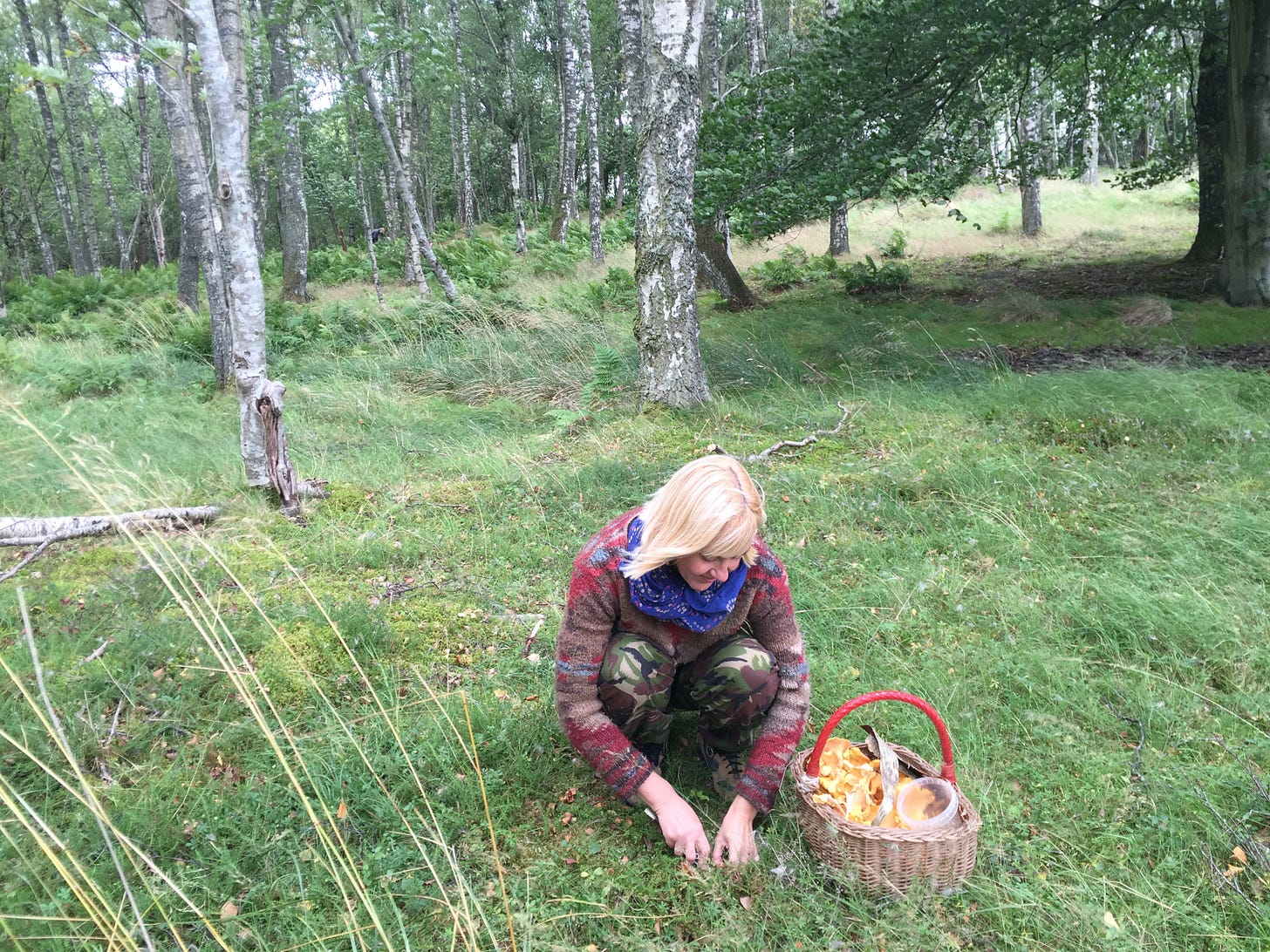
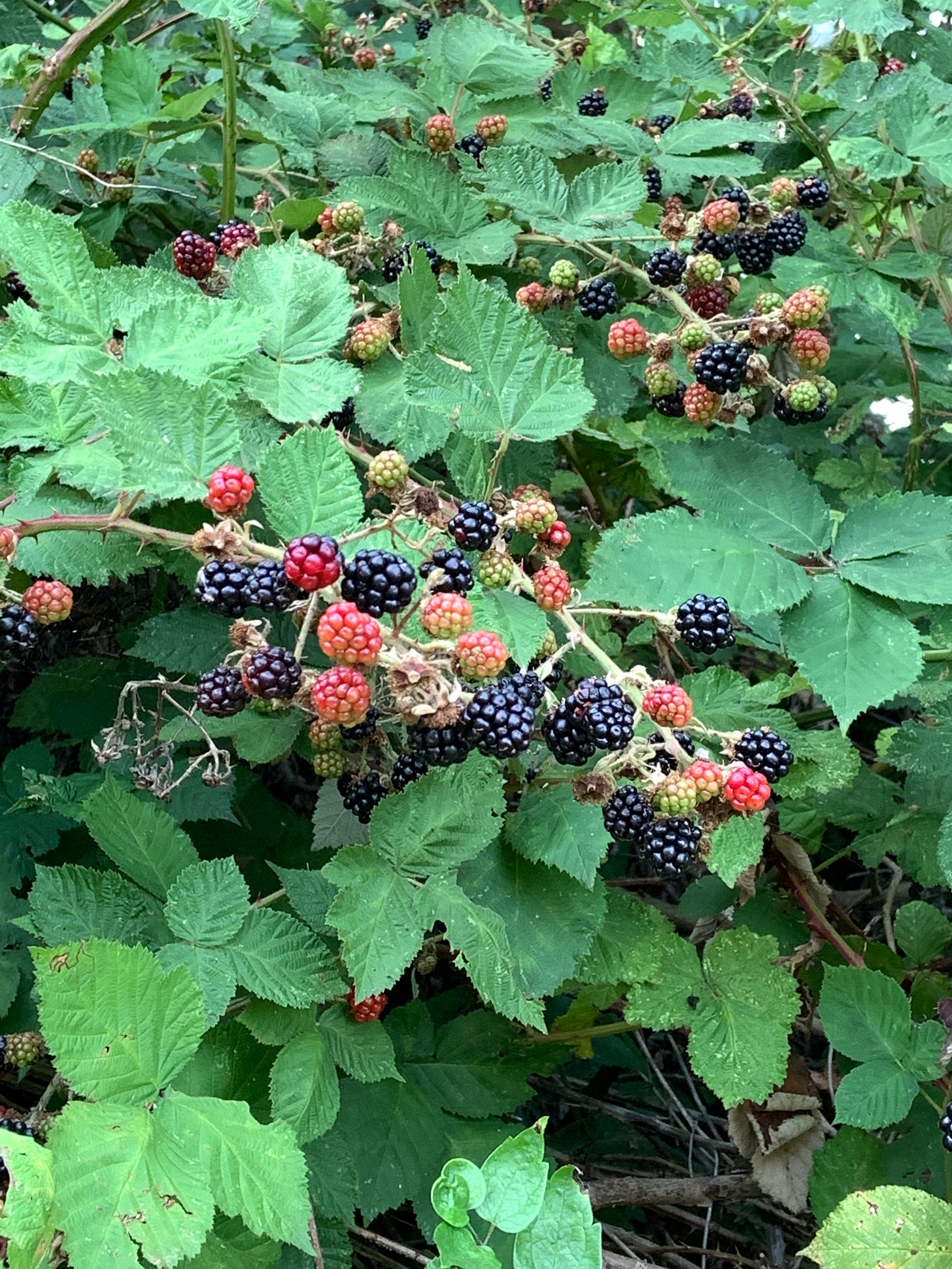
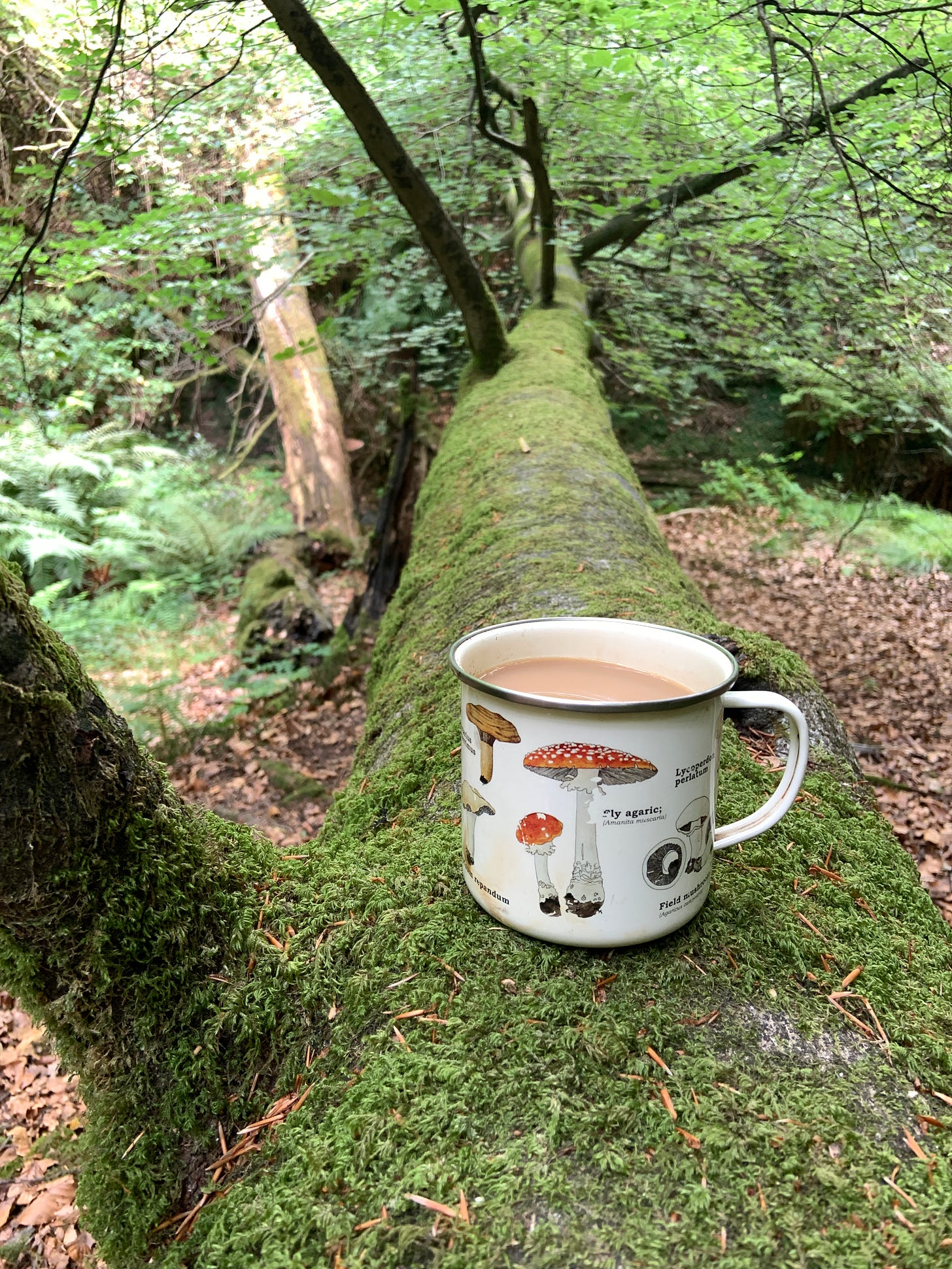
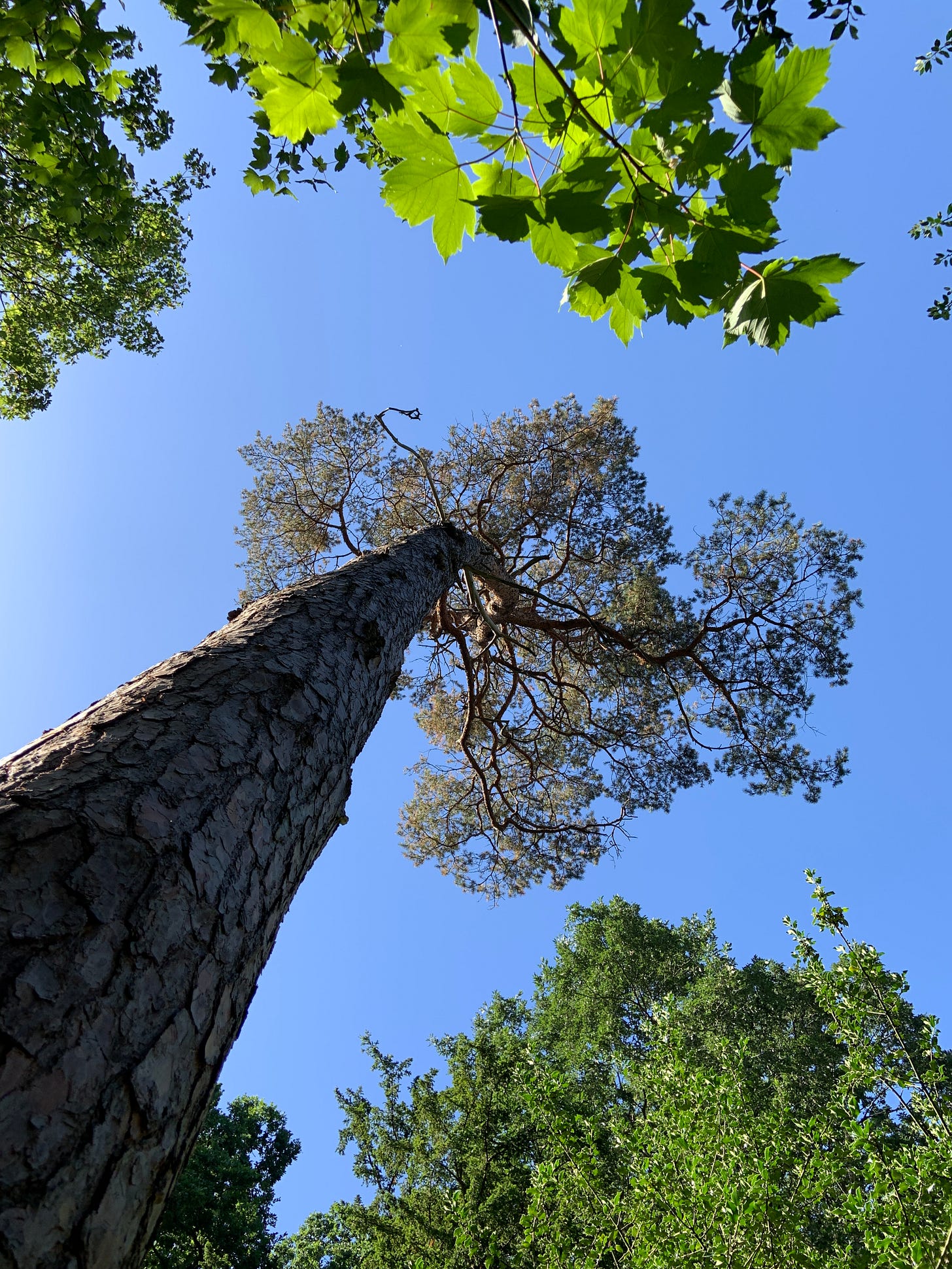
I've been taught that we are spiritual beings having a physical experience. In other words, being in the body is the reason we're here at all, and only an embodied experience can give us what we need before we return to spirit. And we have such a short window of time to make the most of it...
So nice to be able to listen now!